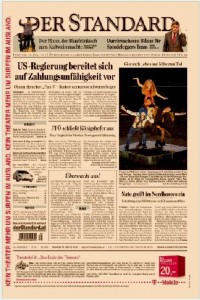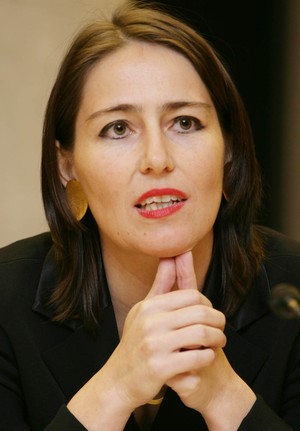Alexandra Föderl-Schmid is Editor-in-Chief of the Austrian daily Der Standard, and under her direction Der Standard has continued to do well despite the global downturn in print sales. She started freelancing for the paper in 1990 and held many posts there including Germany correspondent, EU correspondent and chief business editor before being appointed to the top job in 2007.
Föderl-Schmid is due to speak at the World Editors Forum in Vienna (12-15 October) about what content print newspapers should focus on to not just survive but also thrive.
WAN-IFRA: Lots of successful printed papers and magazines are focusing on niche markets (like finance) and opinion pieces. Are the days when printed papers were a medium for breaking news and general news pieces in the past?
FÖDERL-SCHMID: The function of daily newspapers has changed because the ways of sharing breaking news have multiplied. As a consequence, printed newspapers have become more important as a medium for explaining the news: background, analysis, critique and artwork are becoming more and more crucial. It’s the news behind the news.
WAN-IFRA: Now there are more ways than ever to read the news. What can a printed edition offer the reader in comparison with new digital media?
 Der Standard: National daily in AustriaFÖDERL-SCHMID: Print continues to be seen as credible and consistent. In these fast-moving times it’s an advantage in itself to be able to read through something in a longer format. What’s more, print media puts more emphasis on certain things, there’s a selection process. The advantage of digital media is undoubtedly its speed and the possibility it offers to change things quickly.
Der Standard: National daily in AustriaFÖDERL-SCHMID: Print continues to be seen as credible and consistent. In these fast-moving times it’s an advantage in itself to be able to read through something in a longer format. What’s more, print media puts more emphasis on certain things, there’s a selection process. The advantage of digital media is undoubtedly its speed and the possibility it offers to change things quickly.
WAN-IFRA: What are the most impressive innovations that you’ve seen in print media?
FÖDERL-SCHMID: Der Standard itself has implemented a successful innovation that only works in the print edition. Since 2007 we have been publishing so-called ‘Main Focus Editions’. We follow one theme through the whole paper; all the sections feature articles about it. Daily news also appears as usual. The advantage compared to a supplement is that readers are carried through the whole paper and keep encountering articles relating to the same central theme. From readers’ reactions we know that this new form of journalism, which consciously prioritises a central focus, is well received. The central themes come from anniversaries (UN-Environment Day on June 5th) from incidents arising from current events like the Schengen borders being opened or the World Climate Summit or from timeless themes like happiness or food production. ‘Main Focus Editions’ have also stood the test of the financial crisis.
WAN-IFRA: How can a printed product benefit from interaction with social media and user-generated content?
FÖDERL-SCHMID: Der Standard published a so-called ‘reform agenda’ every week in order to give a more detailed description of particular areas in Austria that require change: education, the pension and healthcare systems, the tax and tariff sector, administration, etc. We asked our users at www.derstandard.at to post us their suggestions. We published the best ones in the paper. That’s one option that provides mutual benefits.





